Joint LSSI and RIS Impact Acceleration Account Showcase
- Tags
- Blog
Leeds Social Sciences Institute (LSSI) and the Research and Innovation Service team (RIS) welcomed colleagues from across the university to the joint Impact Acceleration Account (IAA) Showcase Event. The event celebrated the many meaningful cross faculty relationships and collaborations between LSSI, RIS and our colleagues at the University of Leeds.
As holders of the Impact Acceleration Accounts from funders ESRC, BBSRC, EPSRC, MRC, STFC and Wellcome, Louise Waite from LSSI and Ruth Rayner from RIS hosted the annual event which showcased the wide variety of research that has been supported by IAA funding. Guest speakers provided lightening talks detailing the impact that had been generated from their work.
Development of an affordable and wearable intelligent knee device to support and monitor the rehabilitation for the ageing population with knee osteoarthritis
Dr Aiqin Liu, Lecturer in Biomechanics, School of Biomedical Science discussed the development of an affordable and wearable intelligent knee device to rehabilitate the ageing population with knee osteoarthritis. Using IAA funding Aiqin and her research team have been working on refining the prototype design of a robotic knee device to support and monitor rehabilitation of patients.
Exploring curriculum uptake of co-developed educational resources on antimicrobial resistance in Nepal
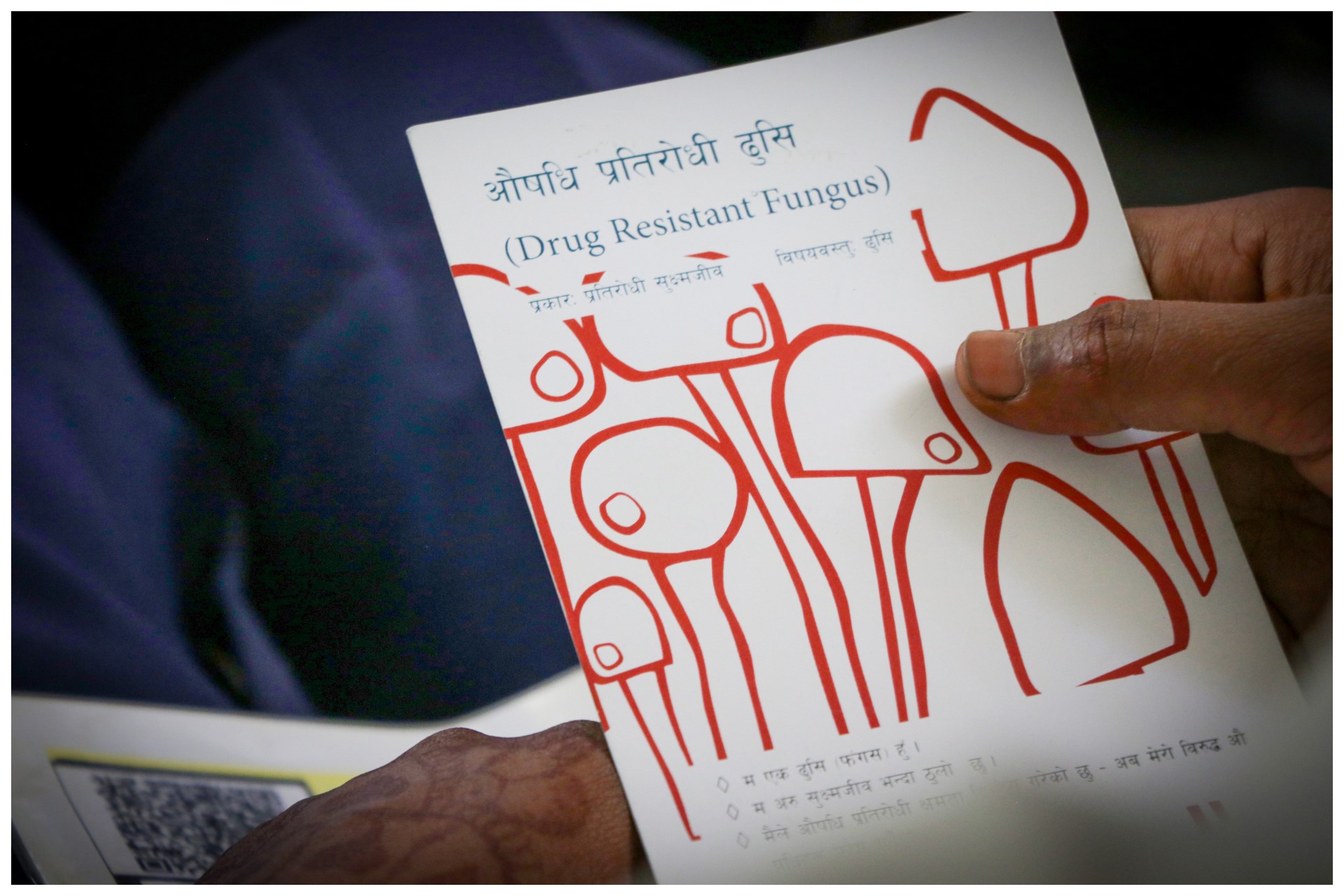
Dr Jessica Mitchell, Postdoctoral Research Fellow in the Leeds Institute of Health Sciences, Faculty of Medicine and Health discussed how the co-creation of educational resources by students, teachers and community leaders in Nepal led to increased knowledge and positive behaviours of many different stakeholders in relation to the challenges of antimicrobial resistance.
Education with impact: enabling high quality humane animal research through building human capacity
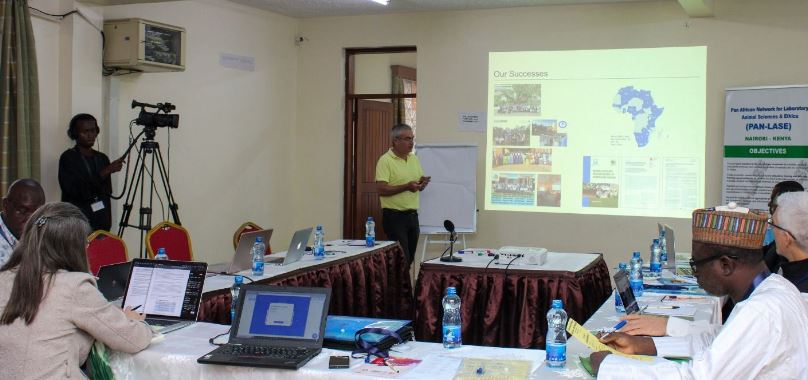
Dr Dave Lewis from the School of Biomedical Sciences continued the education and capacity building theme. Some of the many complex challenges in Africa, such as food security, climate change and nature conservation, can be addressed by using research involving animals. However there has not always been proper education for those involved in research with animals. By drawing on good practice across Africa to co-create, in partnership with organisations and individuals in a country, courses relevant to their country or region the team have created Africa-focused Guidelines for animal ethics committees and Learning Outcomes Frameworks. Read the publication here.
Validation of C19-YRS: a new self-report digital outcome measure for long COVID syndrome
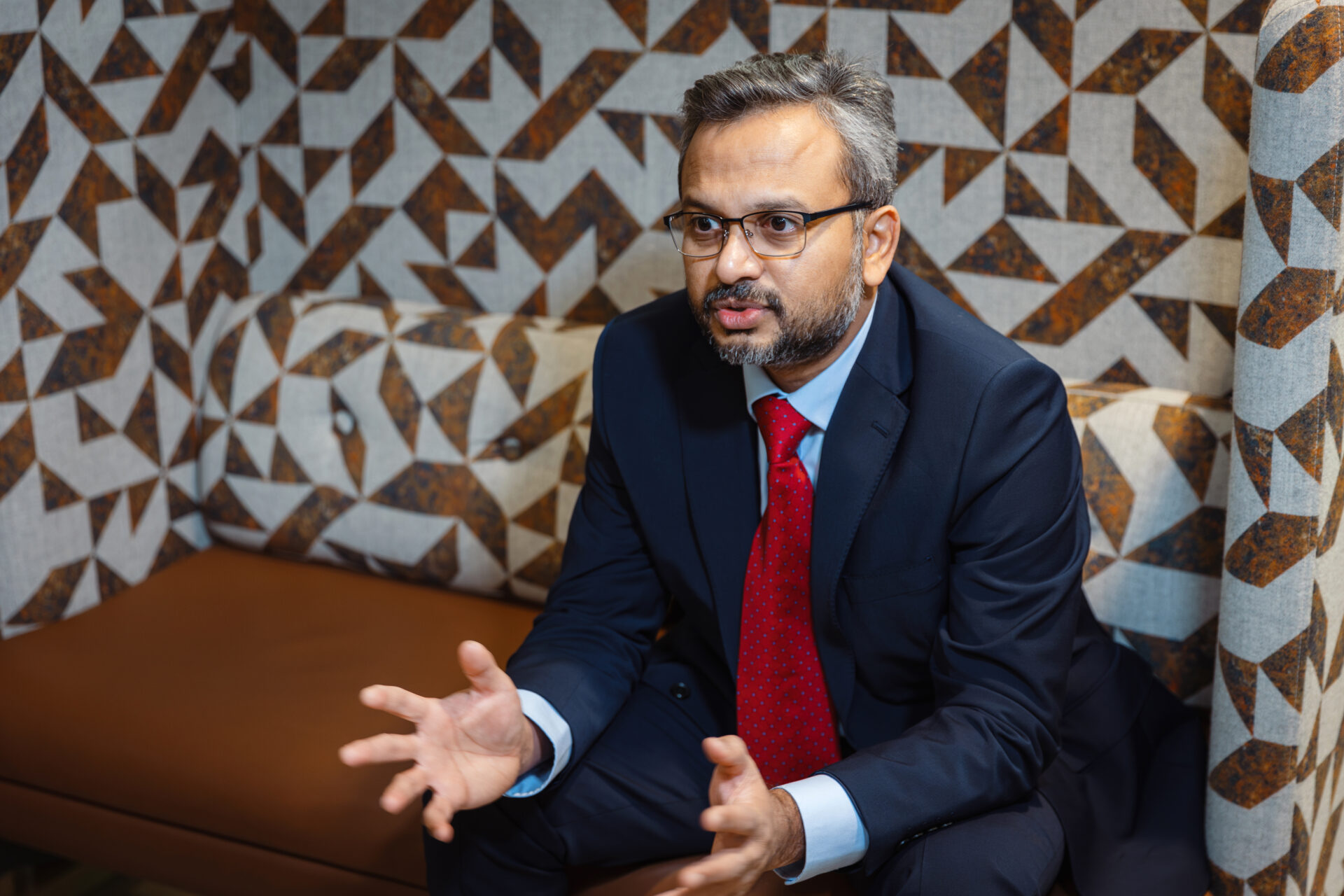
Dr Manoj Sivan, is Associate Clinical Professor and Honorary Consultant, Rehabilitation Medicine with Leeds Institute for Rheumatic and Musculoskeletal Medicine (LIRMM) at the University of Leeds, and an NHS Consultant at Leeds Teaching Hospitals Trust and Leeds Community Healthcare Trust. Manoj discussed how IAA funding helped develop a knowledge sharing app for patients managing long Covid symptoms at home. This app has enabled patients to monitor and report their symptoms, helping them to manage their health. Read the fuller case study of this project here.
Mathematical and computational modelling of infection across scales
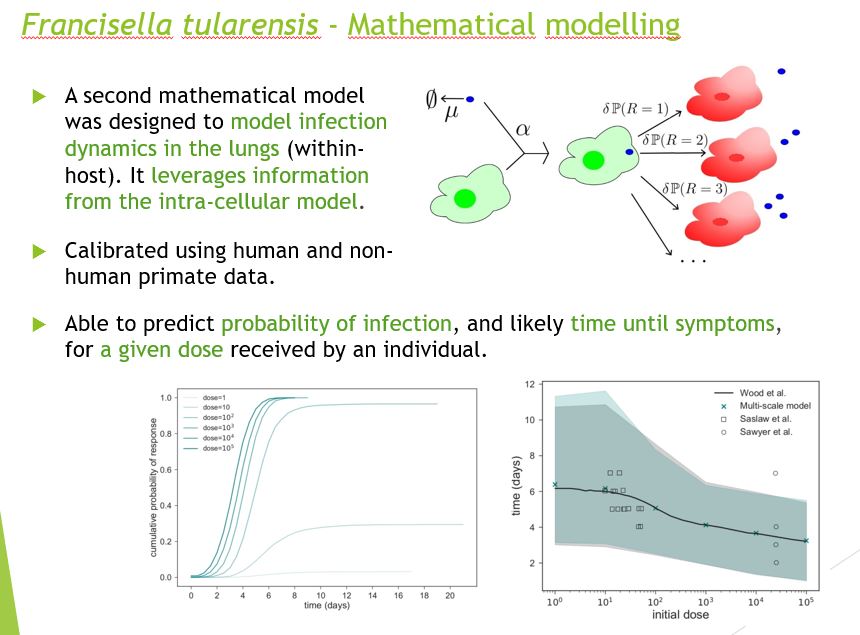
Dr Martin Lopez Garcia, Associate Professor School of Mathematics with the Faculty of Engineering and Physical Sciences has been developing novel mathematical models of infection for a number of pathogens. This project has aimed to shed light on the dynamics of infection behaviour at the intra-cellular, within-host and population levels, to better understand the impacts of treatments and to develop computational tools which can aid in decision making.
Documenting Climate Change
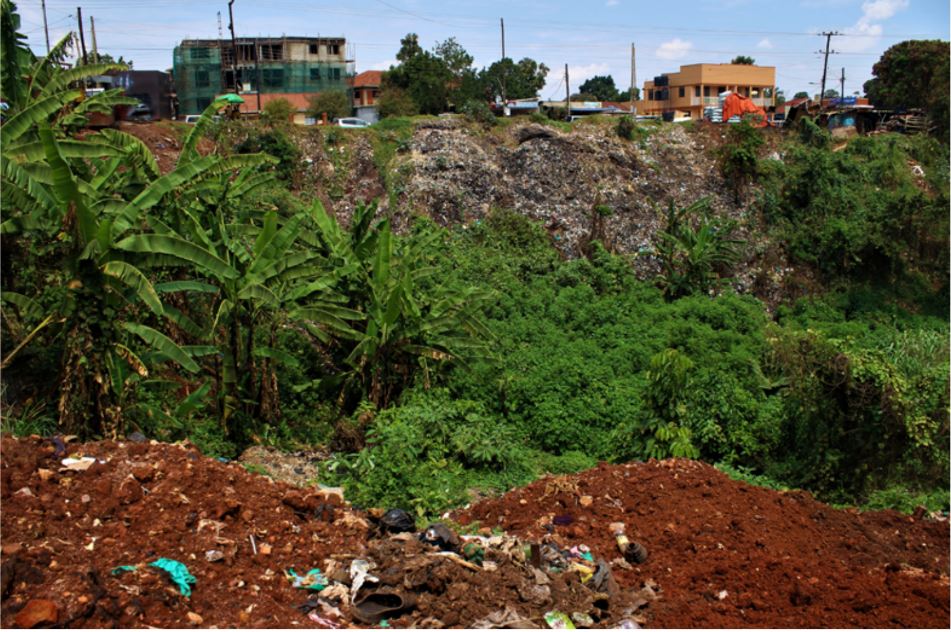
Dr Neil Crawford, Research Fellow in Climate Action and Dr Katie McQuaid, Associate Professor and UKRI Future Leaders Fellow, both from the School of Geography, in the Faculty of Environment, showcased their ‘Documenting Climate Change’ project. This project is part of the broader GENERATE project. The IAA funding was used to create a photographic record of the effects of climate change in Uganda. Emerging photojournalists were given training on photojournalistic, documentary and research skills, and were invited to examine and creatively communicate the myriad ways climate change affects everyday life in towns and cities, and how it intersects with gender, health, sexuality, urbanisation, disability, age, citizenship and food security. Read the publication here.
Maternal mortality in Western Kenya
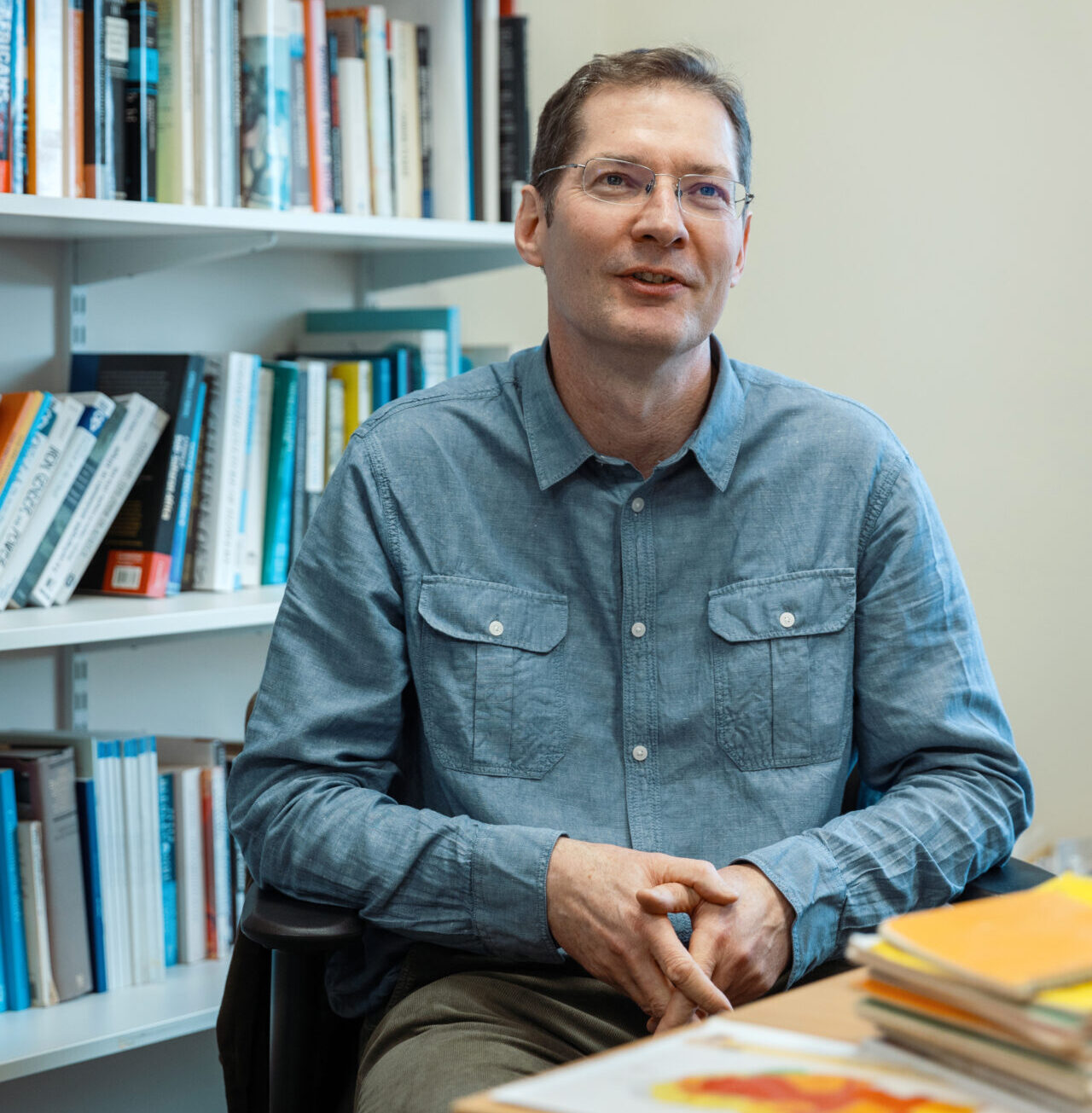
Professor Shane Doyle, with the School of History, Faculty of Arts, Humanities & Cultures has been researching the social and cultural causes of maternal mortality in East Africa. With the help of IAA funding via LSSI he was able to explore the social and cultural factors behind the region’s high mortality rates. Language barriers and suspicion/mistrust of maternal health workers contribute to a lack of engagement in antenatal care. Read the fuller case study of this project here.
Acuity Robotics Ltd: robotics for infrastructure inspection
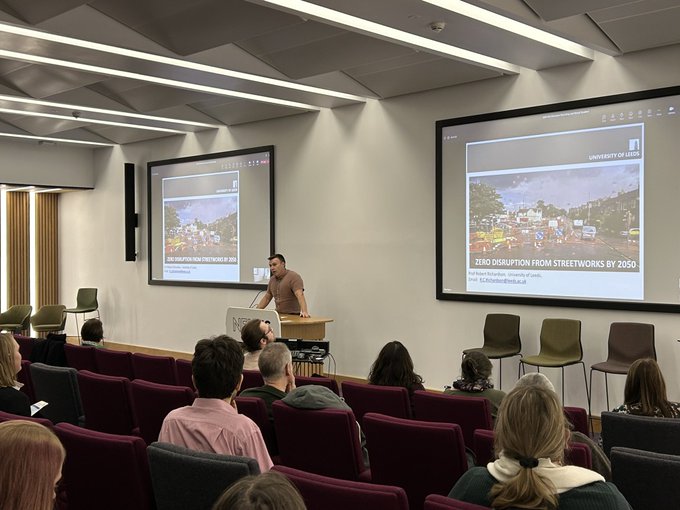
Professor Robert Richardson, Director of the Institute of Design, Robotics and Optimisation and Director of Leeds EPSRC National Facility for Robotics Systems in the School of Mechanical Engineering rounded off the event by asking whether we can look forward to a world where cities repair themselves. His team are working on the design and implementation of drones to maintain city infrastructure such as roads, bridges and pylons. See this short video of a 'bridge bot' that illustrates the wide-ranging impact from this project.
We would like to thank all of the guest speakers at the joint IAA showcase. To find out whether your research could benefit from IAA funding, please visit the LSSI IAA funding page or the RIS funding page.

